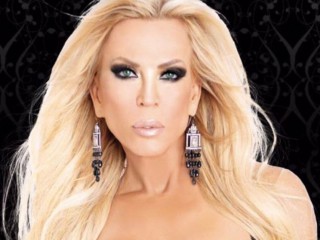From Pharaohs to PayPal: The Long, Sweet History of the “Sugar Daddy”
Ah, the "Sugar Daddy," just saying the phrase conjures images of extravagant gifts, glittering jewels, and luxury yachts. But under all the glitz lies a tale of power, intimacy, and centuries-old transactions that have shaped relationships in surprising ways. The history of the "Sugar Daddy" isn’t just about modern romances sealed with Prada purses and first-class flights. It’s a journey through ancient civilizations, art-world intrigues, and pop culture.
Ancient Origins: Walking Like an Egyptian (with Gold)
The concept of exchanging wealth for companionship is older than Cleopatra herself. In ancient Egypt, pharaohs and royals weren’t shy about doling out opulent gifts like gold, jewels, and even land in exchange for, shall we say, devotion from their lovers and concubines. Sugar wasn’t a thing back then, but power was the ultimate aphrodisiac.
The European Renaissance: Platonic (and Not-So-Platonic) Patrons
Fast forward to the Renaissance, and the art world became the epicenter of sugar relationships. Wealthy noblemen (our early Daddies) acted as patrons for artists, musicians, poets, and often their muses. While these benefactors claimed to support "creativity," many developed deeper, more intimate relationships with their protégés. Consider the French kings who showered their mistresses with châteaux and satin gowns. While they weren’t called Sugar Daddies back then, the dynamic was unmistakable: coin for companionship.
The Gilded Age: Enter “Mr. Sugar Daddy”
The term "Sugar Daddy" originated in the early 20th century, during America’s Gilded Age. Wealth meant power and freedom, and wealthy gentlemen had no qualms about using both to dote on actresses, flappers, and cabaret singers.
Legend has it that the phrase gained traction thanks to Adolph Spreckels, a sugar magnate from California. Adolph married Alma de Bretteville, a model 24 years younger than him, who famously referred to her much older husband as her "Sugar Daddy." From there, the term stuck, even though it was whispered about more than openly discussed in polite society.
The Rise of Pop Culture and the Modern Sugar Daddy
Flash forward to the mid-20th century, and Sugar Daddy relationships became a little less hushed, although still scandalous, of course. Hollywood elevated the concept, whether intentionally or not. Marilyn Monroe’s 'Gentlemen Prefer Blondes’ gave us sly nods to the power dynamics of “diamonds are a girl’s best friend,” and a steady stream of films tiptoed into the same territory. Scandalous yet enticing, the Sugar Daddy became both a plot device and an aspirational archetype for some.
And then came… the internet. Oh boy, did the internet supercharge the Sugar Daddy lifestyle. Websites and apps began catering to arrangements that were, ahem, mutually beneficial. Sugar babies could now scroll through Daddy profiles at the click of a button. The dynamic became so pervasive that graduate students, struggling millennials, and even drag queens could confidently engage in relationships that blurred the lines between romance, mentorship, and financial sponsorship.
View this post on Instagram
It’s important to note that modern Sugar Daddy (and Sugar Mama) relationships are complex. While there is still a transactional aspect, many partnerships involve genuine emotional bonds, mentorships, and shared goals. Some even develop into marriages. In an era of open-mindedness and fluid relationship structures, the concept has shed much of its stigma, embracing the notion of consent and clarity.
Of course, the Sugar Daddy arrangement hasn’t escaped controversy. Critics argue it reinforces economic inequality and traditional gender roles, and some cynics see it as gilded exploitation. Others counter that, when consensual, these relationships can be empowering. After all, what’s taboo about two adults making an agreement that works for them?
And there you have it, dear reader: the history of the "Sugar Daddy," from the grandeur of ancient Egypt to the digital age of swiping right on sugar-coated connections. What started as a transactional display of wealth and power has evolved into a diverse tapestry of relationships shaped by shifting societal norms. Admirers of the Sugar Daddy dynamic see it as a celebration of mutually beneficial partnerships, while critics view it as a mirror reflecting economic imbalances.






















